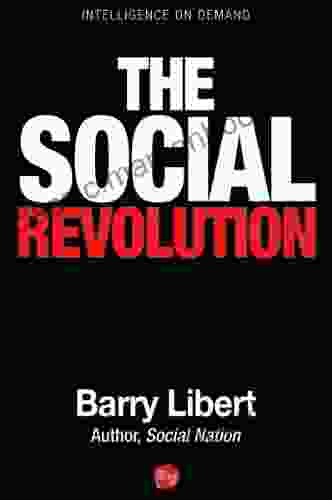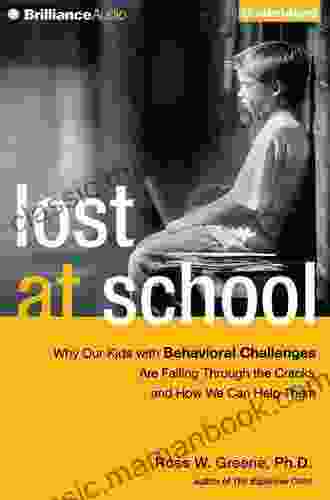Peirce's Affectivity and Social Criticism: An Exploration of American Philosophy

Charles Sanders Peirce (1839-1914) was a pioneering American philosopher, logician, mathematician, and scientist. He is best known for his contributions to the development of pragmatism and semiotics. However, his theory of affectivity, which is central to his philosophy, has received less attention.
4.7 out of 5
| Language | : | English |
| File size | : | 960 KB |
| Text-to-Speech | : | Enabled |
| Enhanced typesetting | : | Enabled |
| Word Wise | : | Enabled |
| Screen Reader | : | Supported |
| Print length | : | 381 pages |
Peirce's theory of affectivity is based on the idea that all human experience is ultimately affective. He believed that emotions, feelings, and sensations are not separate from cognition, but rather an integral part of our understanding of the world. This view is in contrast to the traditional Cartesian dualism that posits a strict divide between mind and body.
For Peirce, affectivity is the driving force behind all human action. He argued that we are motivated to seek out experiences that are pleasurable and to avoid experiences that are painful. This basic drive, he believed, is the foundation for all our beliefs, values, and social institutions.
Peirce's theory of affectivity has a number of implications for social criticism. First, it suggests that all social criticism is ultimately based on affective judgments. When we criticize a social institution or practice, we are expressing our disapproval of its effects on our own or others' well-being.
Second, Peirce's theory of affectivity implies that social criticism must be grounded in empathy. In order to effectively criticize a social institution or practice, we must be able to understand and appreciate the experiences of those who are affected by it. This requires us to put ourselves in their shoes and to see the world from their perspective.
Third, Peirce's theory of affectivity suggests that social criticism must be constructive. The goal of social criticism is not simply to tear down existing institutions, but to build better ones in their place. This requires us to identify the root causes of social problems and to develop creative and effective solutions.
Peirce's theory of affectivity is a valuable resource for social critics. It provides a framework for understanding the motivational forces behind social action and offers a set of principles for guiding the practice of social criticism. By understanding and applying Peirce's insights, social critics can become more effective in their efforts to create a more just and equitable society.
Applications of Peirce's Theory of Affectivity to Social Criticism
Peirce's theory of affectivity can be applied to a wide range of social issues. Here are a few examples:
- Economic inequality: Peirce's theory of affectivity can help us to understand the emotional and psychological toll that economic inequality takes on individuals and communities. This understanding can lead to the development of more effective policies to address the root causes of inequality.
- Environmental degradation: Peirce's theory of affectivity can help us to understand the emotional and psychological impact of environmental degradation on human beings. This understanding can lead to the development of more effective policies to protect the environment and promote sustainability.
- Racial and gender discrimination: Peirce's theory of affectivity can help us to understand the emotional and psychological toll that racial and gender discrimination takes on individuals and communities. This understanding can lead to the development of more effective policies to address these forms of discrimination.
These are just a few examples of how Peirce's theory of affectivity can be applied to social criticism. By understanding the affective dimensions of social problems, we can develop more effective strategies for addressing them.
Peirce's theory of affectivity is a valuable resource for social critics. It provides a framework for understanding the motivational forces behind social action and offers a set of principles for guiding the practice of social criticism. By understanding and applying Peirce's insights, social critics can become more effective in their efforts to create a more just and equitable society.
4.7 out of 5
| Language | : | English |
| File size | : | 960 KB |
| Text-to-Speech | : | Enabled |
| Enhanced typesetting | : | Enabled |
| Word Wise | : | Enabled |
| Screen Reader | : | Supported |
| Print length | : | 381 pages |
Do you want to contribute by writing guest posts on this blog?
Please contact us and send us a resume of previous articles that you have written.
 Top Book
Top Book Novel
Novel Fiction
Fiction Nonfiction
Nonfiction Literature
Literature Paperback
Paperback Hardcover
Hardcover E-book
E-book Audiobook
Audiobook Bestseller
Bestseller Classic
Classic Mystery
Mystery Thriller
Thriller Romance
Romance Fantasy
Fantasy Science Fiction
Science Fiction Biography
Biography Memoir
Memoir Autobiography
Autobiography Poetry
Poetry Drama
Drama Historical Fiction
Historical Fiction Self-help
Self-help Young Adult
Young Adult Childrens Books
Childrens Books Graphic Novel
Graphic Novel Anthology
Anthology Series
Series Encyclopedia
Encyclopedia Reference
Reference Guidebook
Guidebook Textbook
Textbook Workbook
Workbook Journal
Journal Diary
Diary Manuscript
Manuscript Folio
Folio Pulp Fiction
Pulp Fiction Short Stories
Short Stories Fairy Tales
Fairy Tales Fables
Fables Mythology
Mythology Philosophy
Philosophy Religion
Religion Spirituality
Spirituality Essays
Essays Critique
Critique Commentary
Commentary Glossary
Glossary Bibliography
Bibliography Index
Index Table of Contents
Table of Contents Preface
Preface Introduction
Introduction Foreword
Foreword Afterword
Afterword Appendices
Appendices Annotations
Annotations Footnotes
Footnotes Epilogue
Epilogue Prologue
Prologue Olivia Kerr
Olivia Kerr Stan Brock
Stan Brock Shasta Philhour
Shasta Philhour Meia Monae
Meia Monae Kim Wilkes
Kim Wilkes James L Swanson
James L Swanson Marv Wolfman
Marv Wolfman Jimmy Palmiotti
Jimmy Palmiotti Julie Kane
Julie Kane Paul Barron
Paul Barron Geoffrey C Fuller
Geoffrey C Fuller Julie Matthews
Julie Matthews Archie Goodwin
Archie Goodwin Edward Conard
Edward Conard Lancer Kind
Lancer Kind Artur Avelar
Artur Avelar Dalai Lama
Dalai Lama Tiago Lameiras
Tiago Lameiras Pranada Comtois
Pranada Comtois Casey Michel
Casey Michel
Light bulbAdvertise smarter! Our strategic ad space ensures maximum exposure. Reserve your spot today!
 Octavio PazFollow ·7.2k
Octavio PazFollow ·7.2k Terence NelsonFollow ·11.3k
Terence NelsonFollow ·11.3k Branden SimmonsFollow ·8.6k
Branden SimmonsFollow ·8.6k Asher BellFollow ·14.5k
Asher BellFollow ·14.5k Owen SimmonsFollow ·8.6k
Owen SimmonsFollow ·8.6k Easton PowellFollow ·2.8k
Easton PowellFollow ·2.8k George BellFollow ·16.7k
George BellFollow ·16.7k Craig BlairFollow ·11.9k
Craig BlairFollow ·11.9k

 Bryan Gray
Bryan GrayCello Alternativo: Exploring Contemporary Pizzicato...
: Embracing the Avant-Garde Within...

 Victor Hugo
Victor HugoThe Social Revolution: Barry Libert's Vision for a More...
In a world where...

 Tony Carter
Tony CarterA Comprehensive Guide to Crafting Clear and Effective Job...
A job description is a critical tool...

 Deacon Bell
Deacon BellSelected Poems And Prose Lorenzo Da Ponte Italian Library
Lorenzo Da Ponte, born...

 Francisco Cox
Francisco CoxWhat You Need To Know About Opportunity Cost: A...
Opportunity cost is a fundamental concept...

 Bill Grant
Bill GrantWhy Our Kids With Behavioral Challenges Are Falling...
Every year,...
4.7 out of 5
| Language | : | English |
| File size | : | 960 KB |
| Text-to-Speech | : | Enabled |
| Enhanced typesetting | : | Enabled |
| Word Wise | : | Enabled |
| Screen Reader | : | Supported |
| Print length | : | 381 pages |












